OK, here’s the deal. Off grid living is illegal. Sometimes. Let’s start off by clearing up some misconceptions.
In its most simplistic definition, “off grid” living means being disconnected from the public power grid. Off grid living, by itself, is not technically illegal. Producing your own power is off grid living and perfectly legal. Growing your own food is living off the grid, and legal. Building your own home in the country while not being connected to the power grid is off grid. So is raising livestock, building a greenhouse, planting your garden, etc. All legal.

auerimages/Shutterstock
The problem arises when overly restrictive city and county ordinances and zoning restrictions put a crimp on the off grid lifestyle and make it illegal to do certain things on or with your property. That’s when it becomes illegal to live off grid.
Zoning Restrictions & City/County Ordinances Which Prohibit or Severely Limit Off Grid Living or Make it Illegal:
The Problems:
Camping on Your Own Land is Illegal
Yes! You read that right. In most places throughout the USA, it is illegal to camp on your own land for more than 2 weeks. This seems to be an arbitrary duration that most counties and cities have adopted.
Some believe this is about keeping homeless people from setting up tent cities and devaluing surrounding properties.
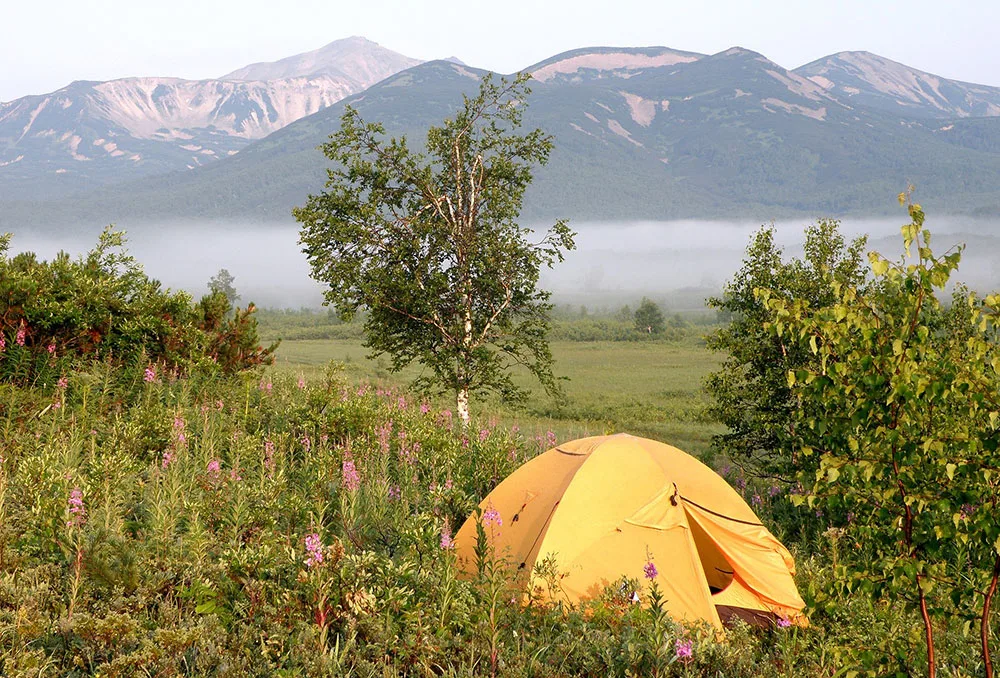
This means that if you wanted to camp in a travel trailer while you build your cabin, you can’t camp there for more than two weeks unless you get a long-term camping permit from your city. Good luck with that.
If they will not issue a permit, then you can not camp on your land, and subsequently, you cannot build your cabin…unless you have another place to stay while you’re building. And that defeats the purpose of having your own land to begin with. Not to mention it increases your costs exponentially.
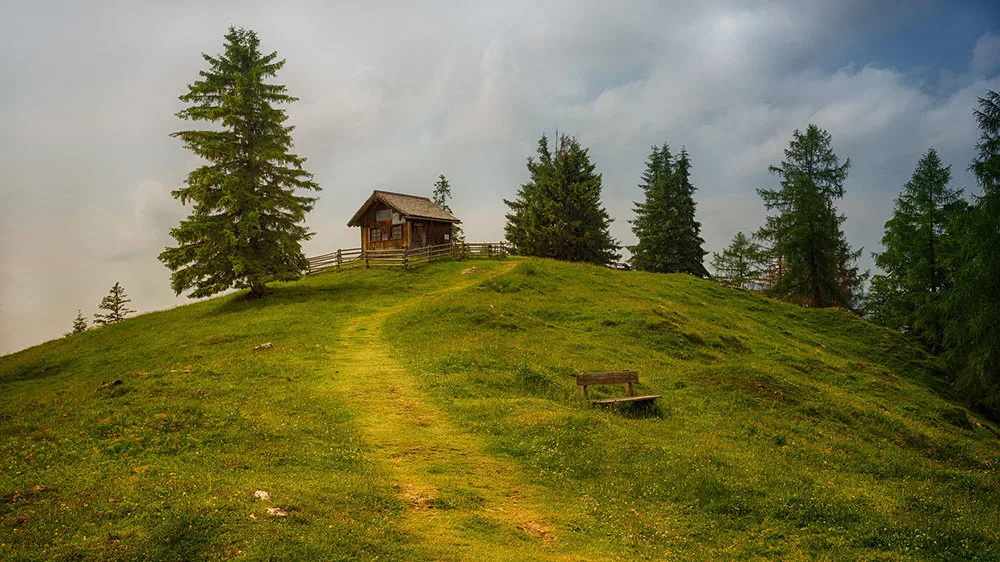
Minimum Square Footage For Your Home
There are zoning restrictions that say your dwelling (whether a cabin or a house) must meet the minimum square footage requirements or the city/county will not issue a building permit. All buildings/dwellings must be approved by the city and county office and you must get a permit before building.
Most counties require a home size between 500-1000 square feet (minimum). This means that if you want a 200-400 square foot cabin on your land, it’s probably going to be illegal to build it because the city/county will not issue a building permit.
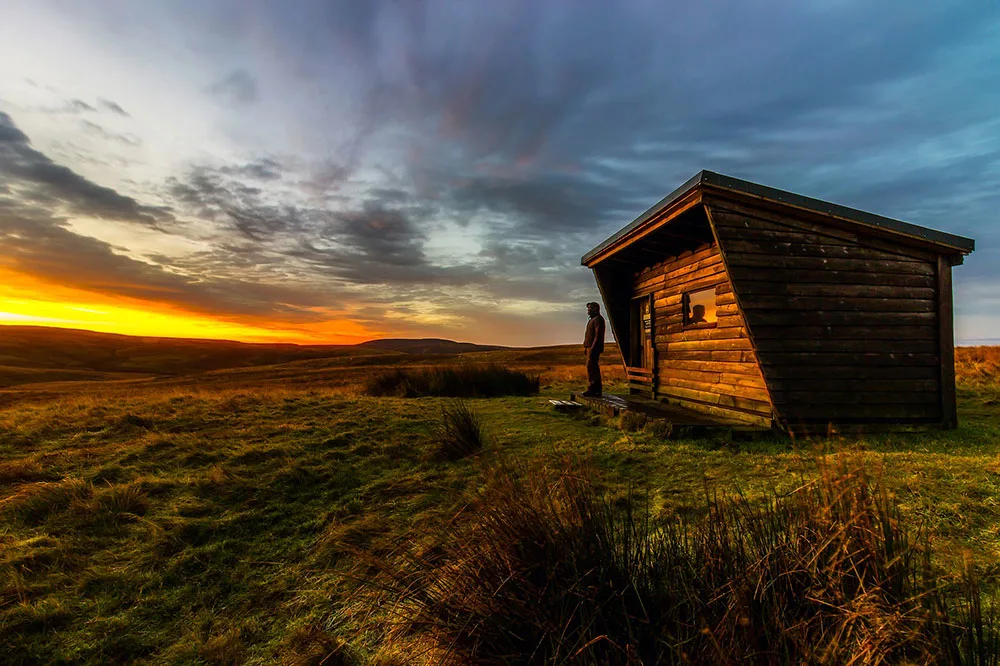
In addition, your cabin must meet international building codes. If your building does not meet building codes you will be in violation of the law even if you do get a building permit.
There is a way to build smaller than the minimum square footage, and that’s by getting what’s called a variance. A variance is relatively difficult to get approved, which means that a tiny house, tiny cabin, or small home will be illegal to build.
Minimum Lot Size
Within city limits, the lot sizes are usually small (sometimes as small as 5000 square feet) and placed close together. But once you move out further from the city/town center into rural areas, the minimum lot sizes become much larger and the county will not allow you to parcel out your land less than a certain size in acres.
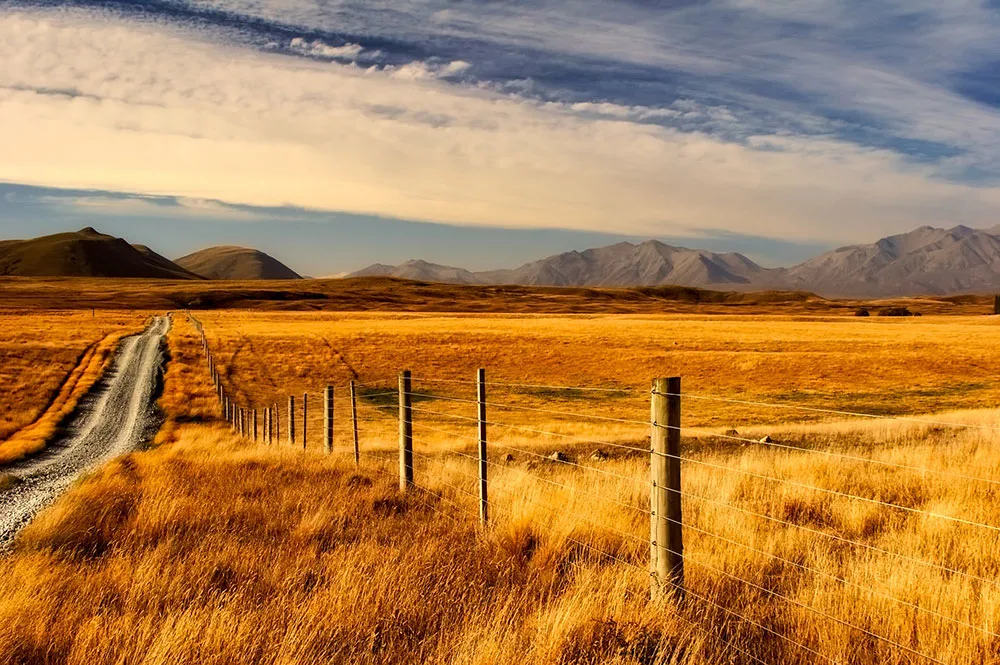
Most rural minimum lot sizes are around 5-10 acres. The reasoning behind this is county planning and population density ‘requirements’ set forth by the county in rural areas. This is severely limiting if you wanted to parcel out your off grid land for business or to sell it off.
In some rural areas, minimum lot sizes are as large as 20-40 acres. Sometimes you might be able to get a variance and get approved by the county for parceling out your land in smaller lots, but then it usually becomes what they define as a “subdivision”. At that point, you must install roads, water management systems (ditches), and submit a plan for your subdivision and where all the “lots” are located.
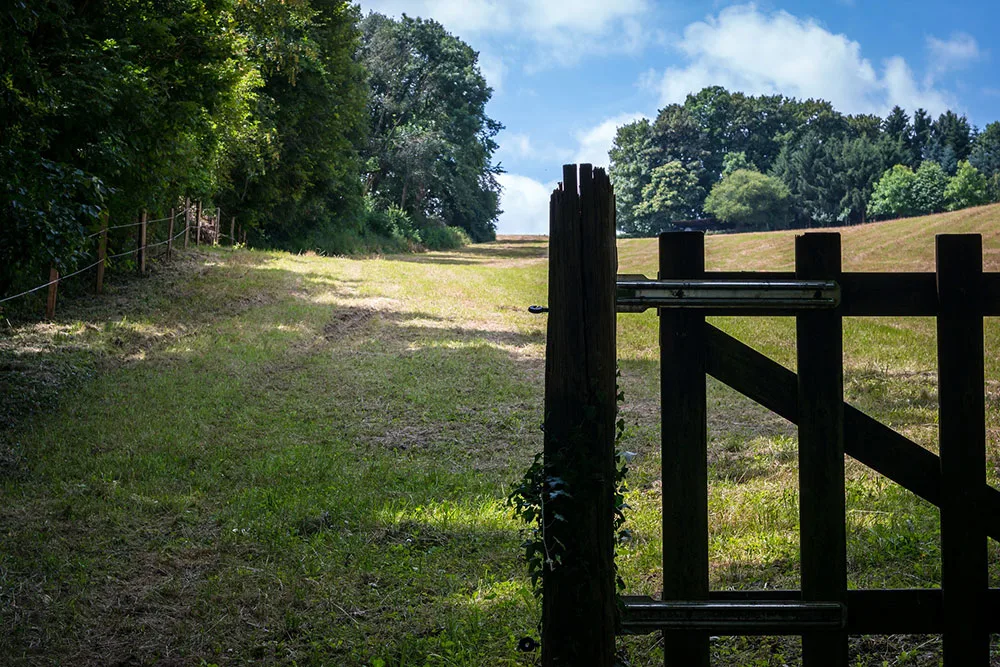
Each lot is then registered with the city, and an address is given. You must also go to the county office and get your subdivision approved and voted on by the committee and your neighbors. Yes. Your neighbors have a say about your property and what you are allowed to do with it.
Water
There must be a water source on your property. This is for sanitation and health. If you’re lucky you will have a well of your own and do not need to hook up to city water. Also, there is usually a large fee involved with hooking up to city water. I’ve seen it as high as $15k for some counties. Not everyone has $15k to throw around so it becomes cost-prohibitive to hook up to city utilities.
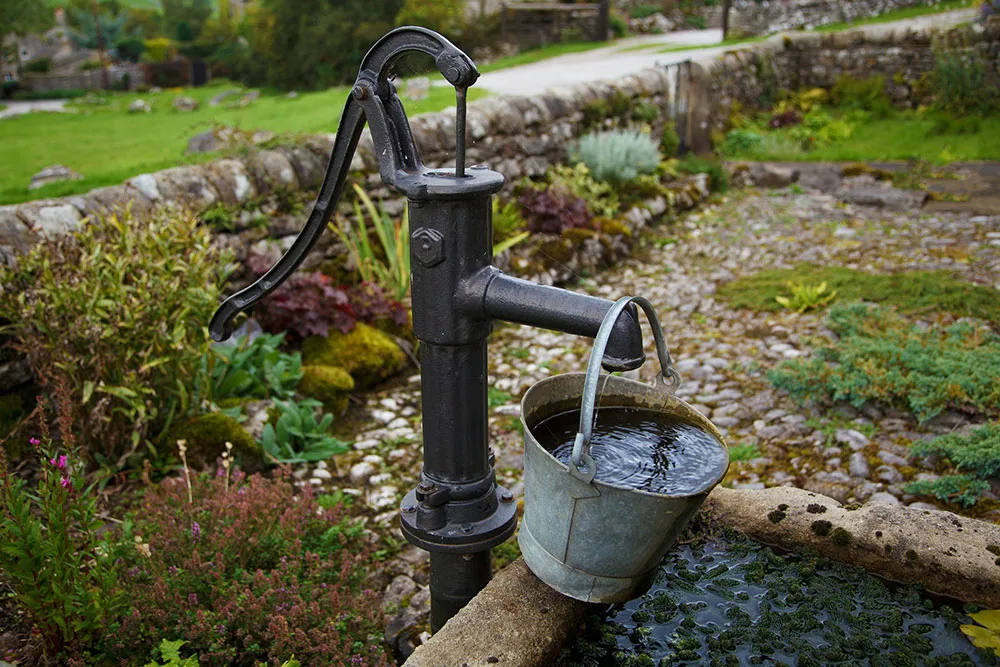
Not to mention living off grid is about being self-sufficient and not dependent upon others for the basics of life. Some counties require you to be hooked up to city water, period, and they will not budge on that or approve any other source. The best advice in these cases is to move out of that county if you want your freedom to choose where you get your water.
Power System
This kind of goes without saying. Some counties will not allow you to be disconnected from their utilities. Usually, this happens in rural areas closer to town. In town, of course, it’s most likely that it’s illegal to disconnect from the public utility system completely.
Some counties allow what’s called a grid-tied solar power system. This is a solar system that allows you to sell surplus power that you generate and do not use back to the city. The problem is you’re still paying for electricity if you do not generate enough to run your home.
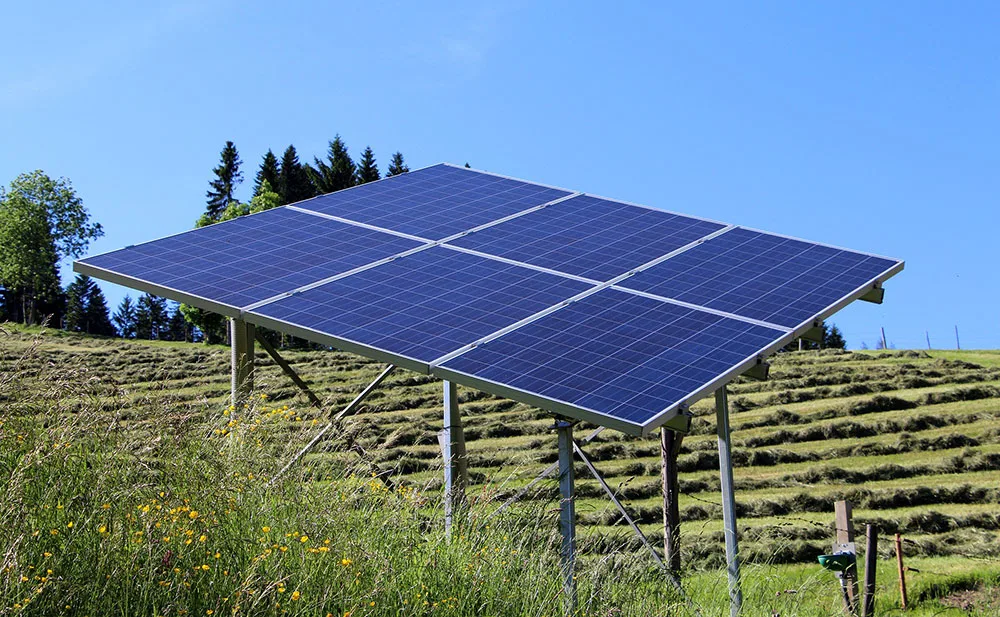
In some cases, it’s possible to cut your energy usage down enough to have a surplus, and that surplus will get sold to the utility company at a discounted wholesale rate. It can eliminate your electricity bill completely, or reduce it enough to make it worth it, but this is not really off grid living.
Usually, the further you are from the city the better and less restrictive the ordinances, and the more likely you will be able to simply power your home or cabin with a solar power system without having to be tied to the grid.
Septic System
This is a big one! You can’t just dump your septic waste into the ground without a ‘proper septic system’.
Usually, counties will require you to have a minimum size septic system, the ground must be tested (called a perc test) “…A percolation test (from percolation, colloquially called a perc test) is a test to determine the absorption rate of soil for a septic drain field or “leach field“. The results of a percolation test are required to properly design a septic system…” ~ Wikipedia

This means more time and higher costs. Some counties do not require a perc test, but some will require you to use a licensed contractor, meaning you cannot build or install the septic system yourself.
If you do it anyway, without a permit, you will be breaking the law and that makes it illegal. So this puts you in a difficult position where you have to spend more money or not build the septic system at all.
Livestock
Rural counties usually are ok with some livestock. Cows, pigs, chickens, goats, horses, etc. are all ok on most agriculturally zoned rural land. However, the closer you get to the city, the more restrictions there are.
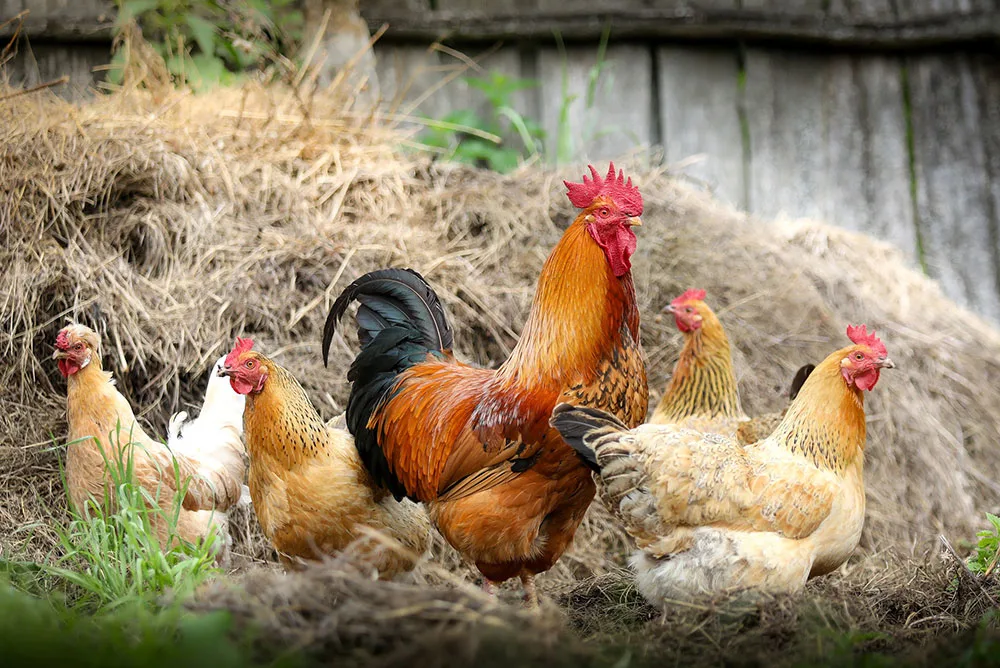
If a property is not zoned for animals, then it’s usually illegal to have them. In most cases a property must be zoned for agricultural use before you are allowed to have any kind of livestock.
Selling Food From Your Garden
In most counties (due to health and safety reasons) it’s illegal to sell your surplus food from your garden unless you have a permit and health inspection.

Technically speaking, it’s not exactly illegal to live off grid. The problem arises from overly restrictive zoning and ordinances that disallow certain actions and construction on your own property.
In most places, this means that if you want to get a piece of land, place a tent, RV, travel trailer or tiny house on it, and camp there while you build your off grid dream cabin, then it’s most likely illegal to do that.
This unfairly and severely restricts your options, especially if you have a limited budget and can’t afford the permits required to jump through all the legal hoops most municipalities have created in their ordinances.
Counties should add allowances for off grid living and update their ordinances to reflect current technology. Originally, all ordinances were put in place for two main reasons: health and safety. The other reason could be to generate revenue for the county through permitting and taxes. That’s ok and fair.
However, it would be nice to update the ordinances to the 21st century based on technological standards and ability that was not available when most of these restrictive ordinances were voted into existence.
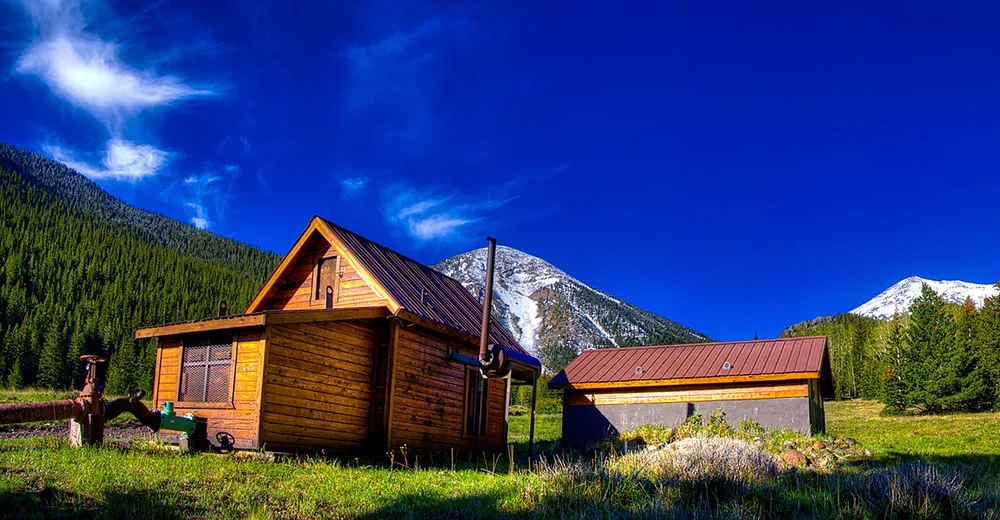
The Solution
We have the technology now to live off grid and still be healthy and safe. We can generate our own power. We don’t need a huge house. We don’t need to be hooked up to city water because we can generate our own clean, potable drinking water. We don’t need to hook up to city sewer systems because we have portable technology that allows us to dispose of our waste much more efficiently than before.
Allow Long Term Camping (with a stipulation you must be actively building a dwelling for the duration of the time you are camping): Being able to camp out on your own land while building a tiny house or cabin should be a right and there should be no ordinances which prohibit or restrict the size of dwellings except for maybe when children are present.
Minimum Dwelling Size on a PER PERSON Basis: Perhaps we can petition local counties to add into their current zoning codes and restrictions the ability to live in “small dwellings” between 100 to 500 square feet and or create a 100 square foot rule. For example, if you have 4 people in your family you will need a minimum of 100 square feet per person. meaning your dwelling would be required to be 400 square feet in size. That’s fair for everyone.
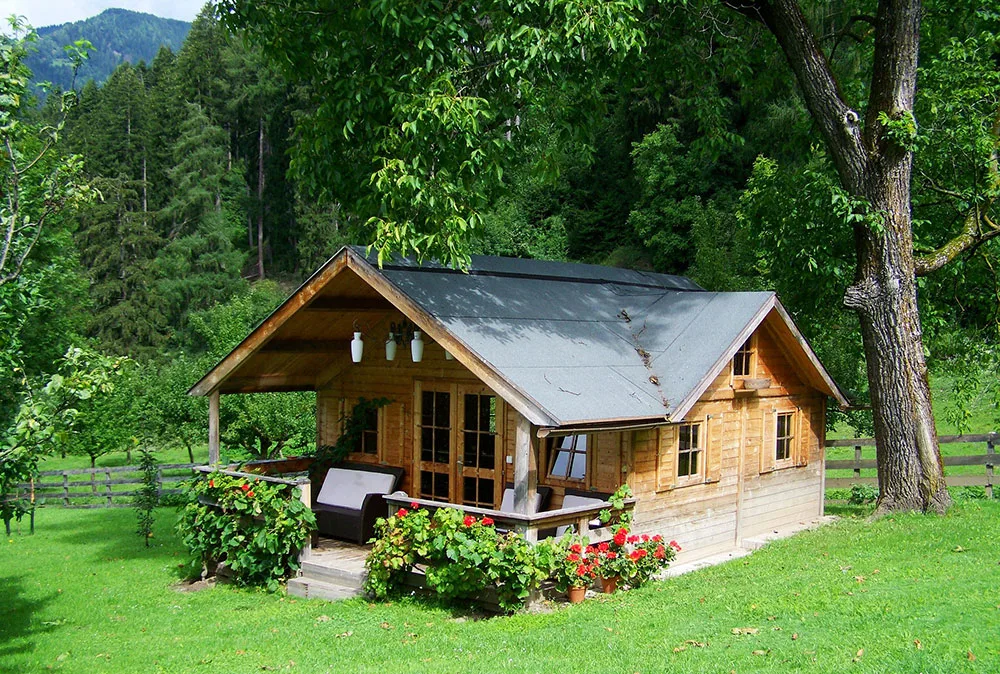
Allow Smaller Minimum Lot Sizes in Rural Areas: (Note: some counties already allow this) Change the ordinances in counties that restrict smaller lots, to allow the ability to split a larger property into smaller 1/2 to 1-acre parcels without having to submit an application for a subdivision or put in roads or sewer.
Petition counties to change the minimum lot size to 1/2 to 1 acre. Make it easier to parcel larger pieces of land into smaller more manageable parcels. It would automatically produce more revenue in property taxes for the county.
Doing these three things would go a long way to making everyone’s lives much easier, and it would also generate more revenue for counties and municipalities throughout the USA.
It just makes sense to update all these outdated and unfairly overly restrictive ordinance which hinder progress and slows down advancement. It brings them into the 21st century and beyond into a brighter future for all.
Our lives have changed, our technology has advanced, and it’s now time for our laws to reflect those changes and allow us to continue to seek our dreams.
We can do this.
***
If you can think of any other things that might make off grid living easier, let us know in the comments below.
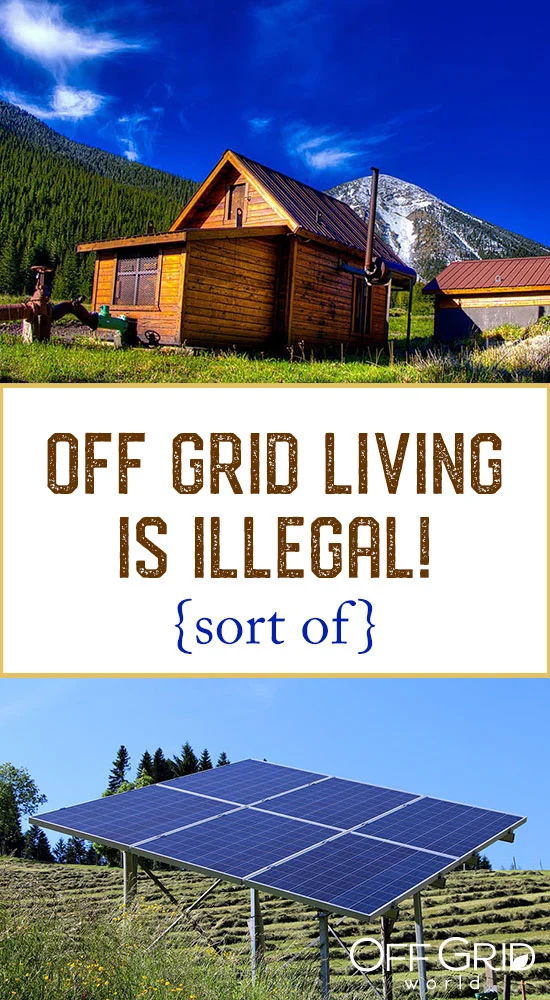

denwood jones
Friday 18th of October 2019
"The problem is you’re still paying for electricity if you do not generate enough to run your home."
But this would be a problem off-grid as well, as you'd be out of power. Right?
So if you're generating (and storing) enough power for your home... then this would never be a real issue, and if you're not at least you had a nice safety net to fall back on which kept your milk from going bad.
The problem is in new builds and the cost of attaching to that grid... for which the solution would simply be that since the electric company is the one that wants you connected, it should be up to them to pay for running the power to the home.
Steveo82
Thursday 30th of May 2019
I live in Scotland and always wanted to just up and leave all government and rules , providing for myself, relying on no one. Maybe one day! . After the kids are older and self sufficient.my respect to off grider and maverick for accomplishing what they have . It must be amazing to live free as you do .
jenni4jo
Monday 15th of April 2019
Maverick - you're an inspiration
off gridder
Tuesday 26th of March 2019
I found this article largely focusing on people who are city dwellers at heart. These people (and I have seen a bunch of them) tend to live 'off grid' (raising some goats or chickens and having solar tied into the grid) for about 10 years, then they move. I am actually a bit offended by this type of off gridder, they just build to sell. Then it does not sell, (again just saying what I have personally seen), now this type of off grid home starts at about 400 sq ft and grows, badly to about 1000 sq ft. It is ugly and generally looks like a homeless encampment, your pictures are not showing the reality, show one of these monstrosities and people will understand why 'restrictive laws' are passed! That being said, I have been off grid for 25 years in a 150 yr old farmhouse and I love it. No issues, except from 2008-2011 at which time banks stopped lending to build off grid dwellings. I was informed that I needed to pay off my home immediately (I was able to, no problem) I found the bank's attitude to be quite off putting. Your article did not touch on how the federal government, under the Obama administration, attempted to discourage off grid living. Or how difficult it is to find home loans when building off grid. As a side note: In 2011, the bank manager who told me that my house was worth $0 in 2008, then informed me that there were two banks in the state who were now able to lend to the off grid population. Now my home is back to being worth actual money! All of that being said, I love off grid living.
Old Man
Tuesday 25th of June 2019
Unfortunately Off Gridder is right. I have seen numerous people who decided to be off gridders give it a go for a few years, then try to sell out because they realized living off grid was not for them. A property about a half mile from my place (a 5-acre track) has have 6 different "committed" off gridders in 25 years. All but 2 went back to city life. One was a success, and moved to a larger property so they could have more livestock. The 6th is still there, but talking to them gives me hints they are ready to pack it in.
They are also right about some off grid properties being little more than a homeless encampment. Spend some time on YouTube and you will see some of them. There are beautiful off grid homes, but there are also some that should be illegal!!
Maverick
Monday 4th of March 2019
Apparently "freedom" went the way of the horse and buggy. I am a widower and neither need or want a large barn of a home. I presently live full time in a 6 x 12 cargo trailer which has electric (heat, lights, a/c, television and 'ham" radio communications), water and sewage facilities. I converted this 2012 model trailer into my home immediately upon purchasing it brand new in 2012. While there is the occasional moment when I wish I would have gone bigger, my dog and I live quite comfortably in our 'metal cabin'. I pay for my trailer's "taxes" by way of annual license tag fees to the State; so I do pay my way. I am (and have been for some quite time) interested in going completely off the grid and am considering moving (from the crime-infested and congestion of Florida) to a rural, quiet, more normal environment in either Missouri or the West Virginia hills. Maybe these are simply pipe-dreams which have come too late to be acted upon because I am 84 years old; but am sick and tired of being a city dweller and having no peace and quiet, fresh air to breathe or fresh veggies from MY own garden. Just sayin'.
TheVik
Thursday 28th of May 2020
Thanks for sharing - I think there are many of us who have hopes of attaining this goal before time runs out. Wish you the best ..